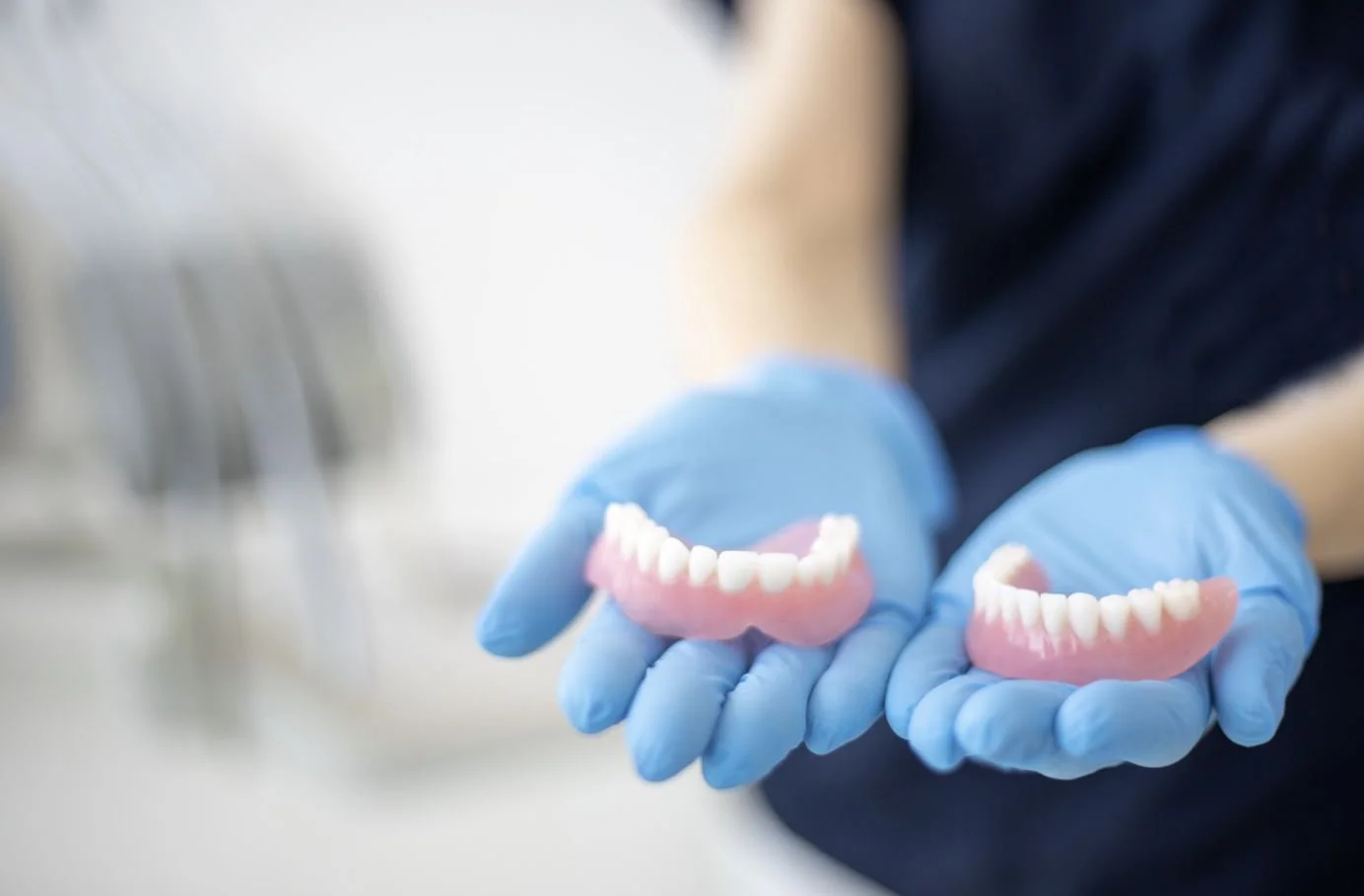Dirty Denture Dangers
Dentures serve as a solution for replacing missing teeth, coming in two types: full and partial. Full dentures replace all teeth, while partial dentures address specific missing teeth. These custom-designed dental prosthetics mimic the appearance of natural teeth, seamlessly fitting into your mouth to avoid any awkwardness or protrusion.
Initially crafted from materials like plastic or porcelain, modern dentures are now commonly made from hard resin. Adjusting to dentures involves a period of adaptation, spanning weeks to months, as you familiarize yourself with eating and speaking while wearing these artificial teeth.
Widely practiced, denture placement is a common dental procedure, with 38.6 million Americans relying on dentures in the past year. Although effective once acclimated, neglecting proper care poses risks, emphasizing the importance of maintaining these prosthetics for optimal functionality and oral health.
Failing to keep dentures clean can lead to various oral health issues and general health concerns. Here are some potential dangers:
1. Bacterial and Fungal Infections: Bacteria and fungi can accumulate on dentures if not cleaned regularly. This can lead to infections in the mouth, including conditions like stomatitis (inflammation of the oral mucosa) and thrush (oral candidiasis).
2. Bad Breath: Poor oral hygiene with dentures can contribute to bad breath, as bacteria and food particles build up on the denture surfaces and in the mouth.
3. Staining and Discoloration: Without proper cleaning, dentures can become stained and discolored. This not only affects the appearance of the dentures but can also impact the aesthetics of your smile.
4. Tartar Buildup: Just like natural teeth, dentures can accumulate tartar (hardened plaque) if not cleaned regularly. Tartar is more difficult to remove than plaque and can lead to gum irritation and inflammation.
5. Gum Irritation and Soreness: Improperly cleaned dentures may have rough or sharp edges that can cause irritation to the gums. This can result in sore spots, redness, and discomfort.
6. Denture Odor: If dentures are not cleaned regularly, they can develop an unpleasant odor. This can be embarrassing and affect social interactions.
7. Weakened Denture Material: The materials used to make dentures can degrade over time if not properly maintained. Regular cleaning helps prevent deterioration and extends the lifespan of the dentures.
8. Stomatitis: This is an inflammation of the oral mucosa (the lining of the mouth), often caused by the overgrowth of yeast (Candida). Dirty dentures can harbor bacteria and fungi, contributing to the development of stomatitis.
9. Oral Candidiasis (Thrush): Candida, a type of fungus, can proliferate on the surfaces of dirty dentures and lead to oral candidiasis. This condition can cause white patches on the tongue, inner cheeks, and other parts of the mouth.
10. Periodontal Disease: Poorly cleaned dentures can contribute to gum inflammation and irritation, which may progress to periodontal disease. This can affect the supporting structures of the teeth and, in the case of denture wearers, the remaining natural teeth.
11. Respiratory Infections: Bacteria and fungi on dirty dentures can be inhaled into the respiratory system, potentially leading to respiratory infections, especially in individuals with compromised immune systems.
12. Gastrointestinal Issues: Inadequately cleaned dentures may harbor harmful bacteria that can be ingested. This may contribute to gastrointestinal issues and infections.
13. Malnutrition: If dirty dentures lead to difficulty eating or if the oral environment is compromised, it can impact a person's ability to consume a balanced and nutritious diet, potentially leading to malnutrition.
14. Mucosal Lesions: Sharp or rough edges on dirty dentures can cause irritation and lesions on the oral mucosa, making individuals more susceptible to infections and discomfort.
It is extremely important to maintain good oral health with dentures through a regular cleaning routine. This includes daily brushing of dentures, soaking them in a denture cleanser, and cleaning the gums and any remaining natural teeth. Regular dental check-ups are also essential to ensure that the dentures fit properly and to address any potential issues. And remember: dentures have an average life span of 10 years, so make sure you visit your dentist twice a year to ensure that your denture is performing the way it is supposed to perform.


